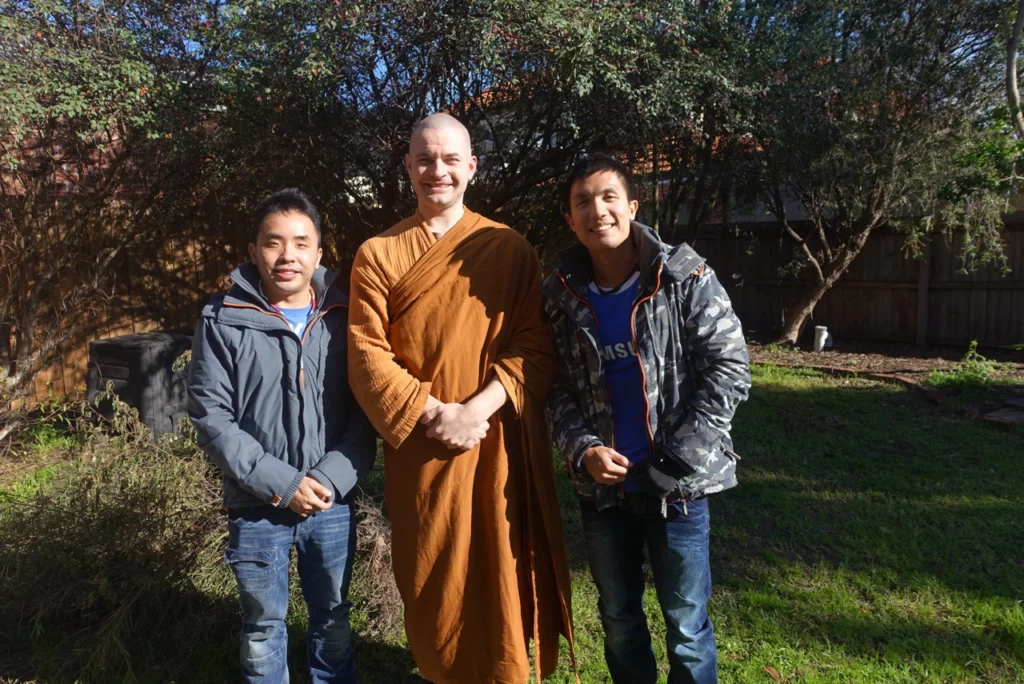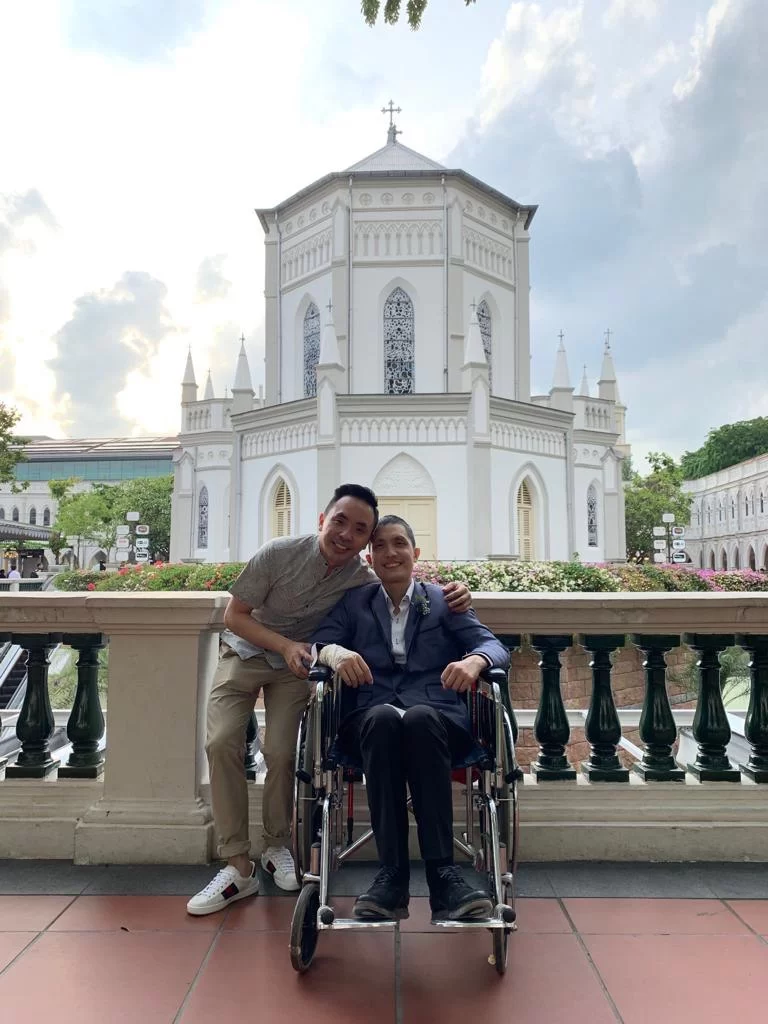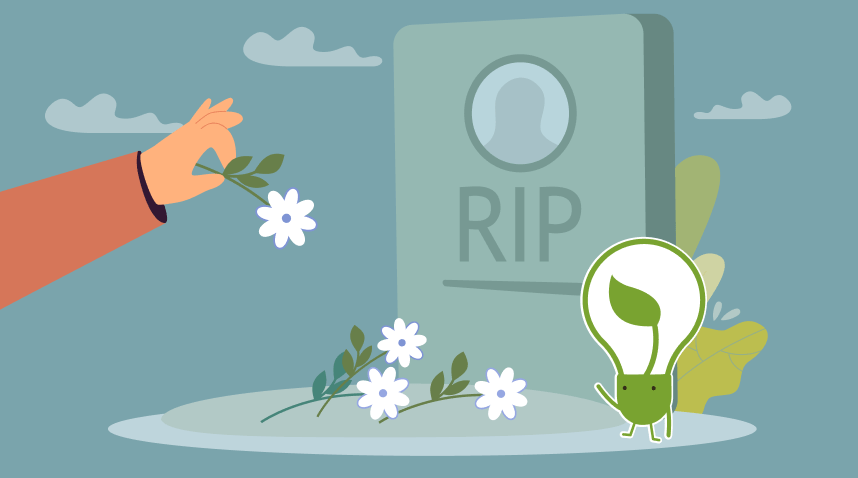TLDR: A friendship of different faiths, a journey of letting go: Read about the power of Dhamma in guiding a dear friend’s peaceful passage.
The Diagnosis
A dear friend of mine, whom I had known for seven years, was diagnosed with a rare form of lymphoma that did not respond to any medical treatment. Our friendship was unique, with our different religious beliefs as a Christian and a Buddhist.
It was like butter and kaya, different tastes that blended so well together like in butter kaya toast.
Though A and I had different religious beliefs, we respected each other’s views, and our conversations were full of similarities about our beliefs. We often joked that if Buddha and Jesus were BFFs in their time, then both of us would be the perfect example of that relationship.
Whenever one of us had a bad day, I would say “Let God” to him, and he would say “Let Go” to me. This had become our favourite phrase over the years: Let God Let Go.
My daily visit to A in the hospital was always a precious one because I knew the time that I could spend with him was limited. I would always get him his favourite food on the days that he had an appetite, tell him funny stories, and do a massage for him which he enjoyed greatly, treating me like his personal masseur.
‘Wow, you really let go!’

On one such day, as I was having my usual conversation with him, he held my hands and said that he had decided to go into palliative care and asked that I stay with him and guide him in this last part of his journey.
Believe it or not, I had never cried since the start of his cancer journey but this time around, I just burst out in tears and cried buckets.
A just stared at me with his sparkling big eyes and cheekily said, “Wow, you really let go!”
This indeed was a real-life practice for me—not only did I have to guide someone in their last journey, but they were also a close friend who was of a different faith.

Developing mental states for future lives

As a Dhamma practitioner and speaker myself, I started trying to recall and research any material that enabled me to be A’s guide for his passing on. The mental states required for heavenly rebirth were a consistent theme in my research.
I thought that if I could use the principles behind these mental states without using Dhamma concepts, it would help A’s mind feel lighter, happier, and joyous, and therefore, it would be of great help for his next life.
There was a conversation in Dighajanu Sutta (AN8.54) between the Buddha and a lay disciple, Dighajanu, about developing mental states for future lives, namely Faith, Ethics, Generosity, and Wisdom.
Faith
Faith is a powerful energy that helps one’s mind feel energised, hopeful, and joyous. It was easy to trigger the faith in A as his religion is built on the foundation of faith.
I encouraged A to consistently arouse his faith in God and understand that whatever happens is in the hands of God. To not worry about the future and just be in the moment.
There were times when A felt immense pain and he told me because of the faith he had in God, the pain decreased tremendously most of the time. As Buddhists, we all know, that is the power of faith—it makes one filled with joy, and probably more endorphins are released into the body.

Ethics
A is, by nature, a good person. If he were a Buddhist, he would be one that kept to his precepts relatively well. I always encouraged him to remind himself of all the good things that he had done, and he had also not intentionally harmed anyone in his life.
This constant reminder of him being a good person also helped him remind himself that he is a good servant to his God.
That recollection itself had helped him overcome his guilt and fear of death. I told him, “Whatever happens, you have a good report card to show to God”, and he often gave a peaceful smile, knowing that he led a good moral life.
Generosity
As for generosity, I told A to recall all the good things that he had done for others and his church. A was an active volunteer of his church. He was also an active missionary who went to various countries to help the underprivileged.
Even when he was fighting the cancer battle, he was generous with his time and was always keen to share his faith and company.
Wisdom
Wisdom was the part that I found hard to explain to him. In Buddhism, wisdom is about realising the 4 Noble Truths (4NT). I was thinking very hard about how to help A to arouse this mental state. One night, as I was reflecting on the 4NT, it then came to my understanding that this whole Dhamma journey is about letting go.
When one realises the 4NT, it becomes about letting go of all greed, ill-will, and delusion. The more you let go, the less you suffer. I told A that he had to let go of any expectations, his body, and eventually his life.
He must Let God. Whatever the journey was, God would have a place for him when his mission was done in this world. A found peace in this and said that he finally understood “Let Go Let God,” which was our favourite phrase.
The journey ends

A few days before his passing, I asked A if he would be ok if I were away for a week as I was the organiser of a meditation retreat. He said he would be okay, and he was at peace and ready to return to heaven at any time.
He cheekily asked me to share merits with him in the retreat and said that he would look out for me when he is in heaven.
That night, I was preparing to rest for the day at the retreat centre. As I was dozing off, I was awakened by a bright light at the corner of my bed. I saw the light and felt extremely peaceful and joyous.
I returned to my sleep and didn’t think much about it as I was exhausted. A few minutes later I received a text from his close friend, stating that A had passed on peacefully in his sleep a few minutes earlier.
When I saw the text, I was at peace and there was immense joy in me. I know A had passed on well and he is now definitely in a good place.
The next morning, I felt a deep sense of gratitude. I am grateful to my dear friend for allowing me to be part of his journey of passing on.
I am grateful to the Dhamma as I have witnessed the power of its teachings. It truly transcends space, time, and even people. If one is willing to listen and accept it, one will truly see the fruits of it. Dhamma is truly Ehi Passiko!


